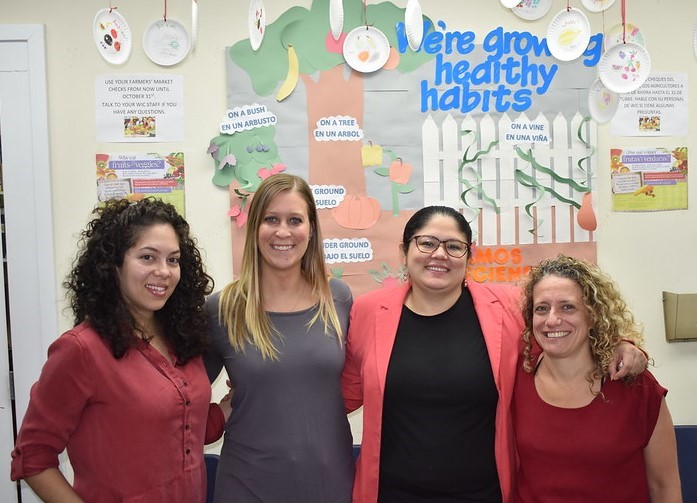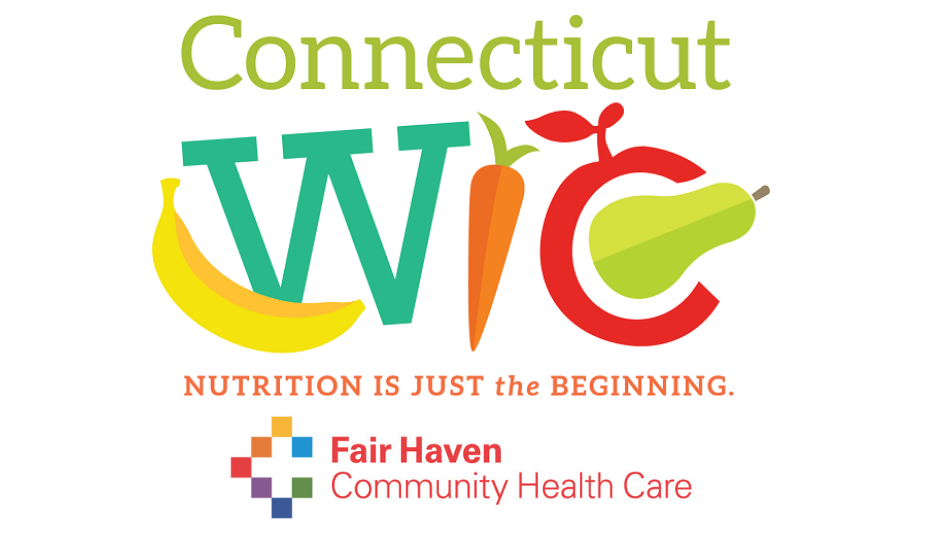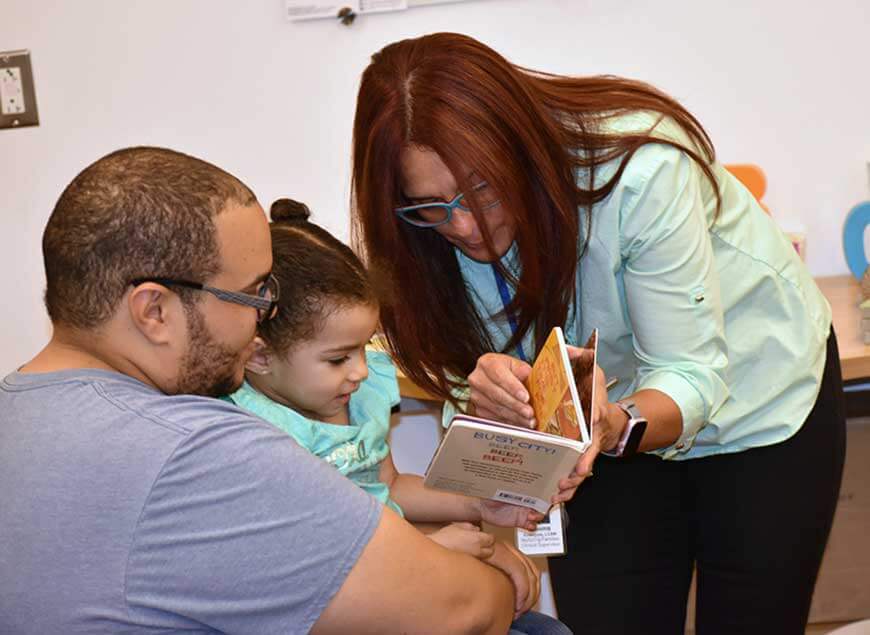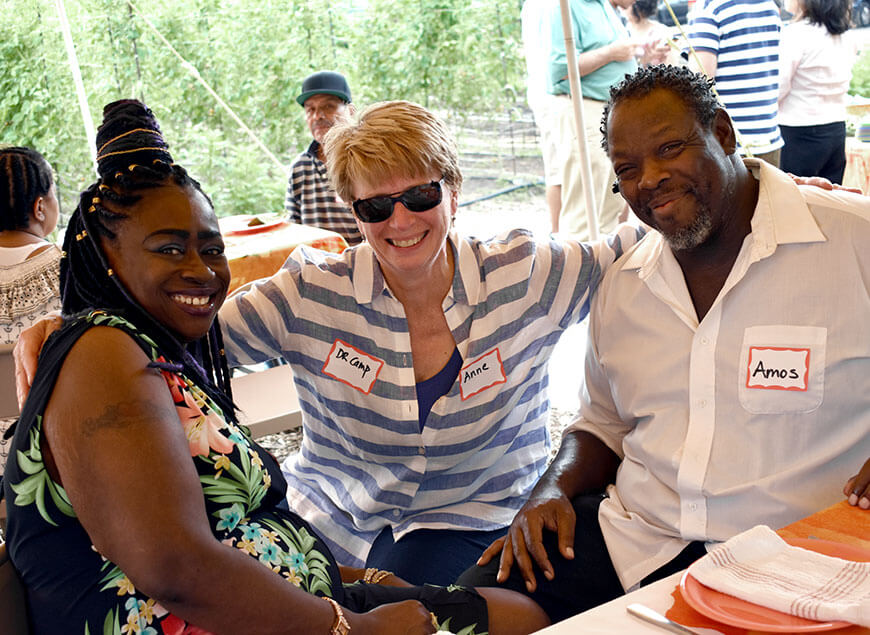Programs

Women, Infants, and Children (WIC)
Fair Haven is proud to participate in the Women, Infants, and Children (WIC) supplemental food program, a state and federally subsidized nutrition-focused program. WIC provides nutrition counseling and helps low-income mothers and their children buy nutritious foods. The program also provides support to pregnant and postpartum women as well as children up to age five.
What does WIC provide?
- Nutrition education and individual time to speak with a Nutritionist
- Breastfeeding education and support with Certified Lactation Counselors on staff and a Peer Counselor to help support you throughout your breastfeeding journey
- Supplemental foods (through EBT card)
- Food assistance and health care referrals to promote overall health and minimize nutrition-related health problems
Who is eligible?
WIC is for all kinds of families – Fathers, grandparents, foster parents, or legal guardians are encouraged to apply for their children.
- Pregnant women
- Postpartum women (eligible for at least 6 months after birth/after pregnancy ends)
- Breastfeeding women (up to 1 year after birth depending on breastfeeding amount)
- Infants and children up to their 5th birthday
What are the eligibility requirements?
WIC is for all kinds of families – Fathers, grandparents, foster parents, or legal guardians are encouraged to apply for their children.
- Live in Connecticut
- Meet income guidelines
- Participation in Husky A/C/D/Medicaid, Food Stamps (SNAP), or Temporary Family Assistance (TFA/TANF) automatically qualifies you for income
- If no state assistance, you must meet WIC income guidelines set at or below 185% of poverty line (WIC staff can help determine this)
- Complete a nutrition assessment with Nutrition staff
How to Apply
For more information and to apply, please contact 203-773-5007 or email wic@fhchc.org.
Learn More
To learn more about WIC program from the CT Department of Public Health, click here.
For more information about WIC’s breastfeeding and support services, click here and here.

USDA Non-Discrimination Statement
In accordance with Federal civil rights law and U.S. Department of Agriculture (USDA) civil rights regulations and policies, the USDA, its Agencies, offices, and employees, and institutions participating in or administering USDA programs are prohibited from discriminating based on race, color, national origin, sex, religious creed, disability, age, political beliefs, or reprisal or retaliation for prior civil rights activity in any program or activity conducted or funded by USDA.
Persons with disabilities who require alternative means of communication for program information (e.g. Braille, large print, audiotape, American Sign Language, etc.), should contact the Agency (State or local) where they applied for benefits. Individuals who are deaf, hard of hearing or have speech disabilities may contact USDA through the Federal Relay Service at (800) 877-8339.
Additionally, program information may be made available in languages other than English.
To file a program complaint of discrimination, complete the USDA Program Discrimination Complaint Form, (AD-3027) found online at: https://www.usda.gov/sites/default/files/documents/USDA-OASCR%20P-ComplaintForm-0508-0002-508-11-28-17Fax2Mail.pdf, and at any USDA office, or write a letter addressed to USDA and provide in the letter all of the information requested in the form. Updated 1/2021
To request a copy of the complaint form, call (866) 632-9992. Submit your completed form or letter to USDA by:
(1) mail: U.S. Department of Agriculture Office of the Assistant Secretary for Civil Rights 1400 Independence Avenue, SW Washington, D.C. 20250-9410;
(2) fax: (202) 690-7442; or
(3) email: program.intake@usda.gov.
This institution is an equal opportunity provider.

Family Support Services
Our Family Support Services are a key component of our holistic patient care, offering education, resource and counseling services as part of every patient’s good health plan. These services include: Care Coordination, Healthy Start, Family Home Visiting Program of New Haven, and Women, Infants and Children (WIC). See below for details on each program.
Care Coordination
Fair Haven Community Health Care is a great place to get your medical, dental, and behavioral health care, but did you know that we can help you with getting other types of services and resources?
Care Coordinators can help individuals and families access lots of different support services that can make a difference in your day to day life. We can link you to community programs that can help you with the following:
- Basic Needs: food, clothing, shelter, transportation, bills
- Affordable Housing and problems with present housing situation
- Utilities: heat, water, electricity
- School and Special Education Services for children
- Children with Special Needs
- Legal Services and Immigration Services
- Help with state benefits: HUSKY, SNAP, WIC
- Employment Services
- Addiction Treatment
- Help with violent relationships
- Elderly Services
- Disability Services and Social Security
- Paying for your Medications
- Behavioral Health Treatment
- Eligibility for State Services: HUSKY, Medicaid, Medicare
Want more info about our Care Coordination services?
Contact us at 203-777-7411
Women, Infants, and Children (WIC)
Fair Haven offers the state and federally subsidized Women, Infants, and Children (WIC) supplemental food program. WIC provides nutrition counseling and helps low-income mothers and their children buy nutritious foods. WIC helps low-income pregnant and postpartum women, and children up to age five, to buy the extra foods they need during pregnancy, infancy, and young childhood. Women and children must be low income and have a nutritional risk such as poor diet, low weight gain, or anemia in order to be eligible.
Learn more WIC and Connecticut eWic.
Want more information about our WIC programs?
Contact us at 203-773-5007.

Diabetes Care Programs
Since 2007, the Fair Haven Community Health Care’s Diabetes Prevention Program (DPP) has offered 1-hour healthy lifestyle class once per week for participants in the 16-week Intensive Lifestyle Intervention. The healthy lifestyle program curriculum is based on the National Institutes of Health’s Diabetes Prevention Program curriculum, amended by the University of Pittsburgh to fit larger groups, and further translated to fit Fair Haven’s particularly predominant Latino population. Classes are taught by Fair Haven DPP clinicians and are delivered in both English and Spanish. Bilingual presentations and handouts guide the learning for each session, while facilitators address the diverse needs and experiences of the participants.
Cooking demonstrations and discussions are an experiential learning component of each class, and foods prepared each week reflect the ripe produce harvested that week from the program’s garden. Between 15-20 adults attend classes on a weekly basis, and often that same group stays the next hour for a professional trainer-led exercise class. Children attend their own exercise classes during the adult nutrition and exercise classes, while infants and toddlers attend onsite childcare. Aligned with the notion that diabetes is a family-oriented disease, when one patient is invited to attend nutrition classes, the DPP staff invites members of the patient’s family to attend as well.
Bright Bodies
Bright Bodies is a weight management program for children ages 7 to 16 that involves nutrition education, behavior modification and exercise in a family setting. Children and their families attend class once a week and exercise three times a week. This program is run in conjunction with the Diabetes Prevention Program as the clinic works to combat obesity and diabetes with lifestyle changes for entire families.
For more information, visit the Bright Bodies website. You can also learn more about the Bright Bodies curriculum here.
GRADE at FHCHC
Type 2 diabetes is an epidemic that threatens to become the century’s major public health problem and poses enormous human and economic challenges worldwide. As important challenge is to determine which of the many possible drugs is the best choice among people already treated with metformin, the most commonly used diabetes drug. To answer this question, the National Institute of Diabetes and Digestive and Kidney Diseases (NIDDK), part of the National Institutes of Health, in collaboration with 45 clinical sites in the United States, is conducting a major 7 year study to determine the best combination drug treatment for type 2 diabetes.
The Glycemic Reduction Approaches in Diabetes: A Comparative Effectiveness Study (GRADE Study) is a randomized clinical trial of participants diagnosed with type 2 diabetes within the past 10 years. Participants are randomly assigned to 1 of 4 commonly used glucose-lowering drugs, plus metformin, and are followed for up to 7 years. The goal of the GRADE Study is to evaluate which of the treatments for type 2 diabetes are best for different groups (by gender, race, and ethnicity) of patients.
Since 2013, the study has enrolled 5,047 participants nationally. Fair Haven Community Health Care is unique, as the only FQHC in the U.S. awarded this important study grant. Along with our study partners at the Yale School of Medicine, 156 enrolled participants are followed with regular diabetes care visits. Diabetes medications, laboratory tests, diabetes education, and diabetes supplies are provided at no cost for the duration of the study, expected to end in 2021.
Fair Haven staff conducting the GRADE Study are:
Anne Camp, MD (Co-Principal Investigator)
Magalys Perez, RN, BSN (Study Coordinator/Research Nurse)
Abmaridel Montosa, RN, BSN (Retention Coordinator, Study Nurse)
Elizabeth Magenheimer, FNP (Recruitment/Retention Coordinator)
